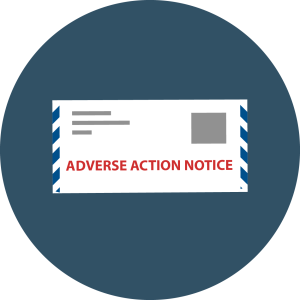Talk to Sales: (401) 200-6026
Does your dealership have these automotive compliance issues under control? Lack of attention may lead to serious consequences.

Dealership owners have their hands full. The industry is quickly changing, so they’re constantly on their toes with every aspect of the business, from marketing to employee development. One issue has become more of a challenge, and can be fatal to a dealership if overlooked: automotive compliance. Mistakes with federal and state regulations don’t receive a slap on the wrist—your dealership could go out of business.
Automotive compliance should not be at the back of your mind—it deserves a front and center seat. You can worry about developing better lead generation techniques and online marketing strategies, but nothing is more important than following state, federal, and municipal laws. You can make many mistakes in business strategy; one misstep with automotive compliance and you may wind up in deep waters.
1. Emails don’t follow the CAN-SPAM Act rules
Marketing emails have to comply with the CAN-SPAM Act. Of course, most businesses know the regulations, but not everyone follows them completely. If you don’t train your employees on the specifics of the law, you could run into trouble when someone reports a violation.
Here is a brief synopsis of the CAN-SPAM Act and its main requirements:
- Don’t use false or misleading header information.
- Don’t use deceptive subject lines.
- Identify the message as an advertisement.
- Include your valid physical postal address.
- Tell recipients how to opt-out of receiving future email from you.
- Honor opt-out requests promptly (within 10 business days).
- Monitor what others are doing on your behalf.
2. Salespeople skip the OFAC background checks
The Office of Foreign Assets Control (OFAC) requires car dealerships to conduct background checks for possible links to dangerous groups (or terrorists). Do your employees always check? They better, or you could be held responsible for millions of dollars in fines and possible jail time. The OFAC takes these requirements very seriously, and so should you. Have a system in place to conduct these background checks every time, no matter the inconvenience or circumstance.
3. Improper reporting of cash payments over $10,000
There was a time when a customer could pay for a vehicle in cash, on the spot, with no worry. That hasn’t been the case in years, as you know, but dealerships still get into trouble without properly reporting cash payments. Anything above $10,000 requires an 8300 form within 15 days of the transaction.
Not complying with these IRS regulations could result in a fine of up to $100,000 for a single mistake and $250,000 for ten violations in a year. Oh, and up to five years in prison.
4. Misleading fuel economy advertisements for vehicles
As newer, fuel-economic cars have hit the market, regulations have also been implemented to keep dealers from misleading customers about the facts. For instance, you have to list accurate numbers for both city and highway mileage and label them separately. If you only advertise the highway mileage for city estimates, it’s unlawful. These figures must also be accurate for that car’s specific make and model, not a different one.
5. Telemarketing over-steps boundaries and regulations
Have a salesperson that likes to make sales calls early in the morning? Make sure it’s not before 8:00 a.m., or else he will violate the Telemarketing Sales Rule laid down by the Federal Trade Commission (FTC).
The law also prohibits:
- Misrepresentations
- Transmission of Caller ID information
- Unauthorized billing
- Payment restrictions for the sale of certain goods and services
- Making outbound telemarketing calls outside the hours of 8 a.m. and 9 p.m.
- Use of prerecorded messages (unless the customers have given written consent)
6. Salespeople don’t check the “Do Not Call” lists for cold prospects
Stemming off the Telemarketing Sales Rule is the National Do Not Call Registry. These consumers have requested limited or no telemarketing phone calls. Do your salespeople run prospects through the list before calling? Even if the person is a referral from another customer, they may complain or report the call to the FTC and get you fined.
 7. No training for identifying identity theft red flags
7. No training for identifying identity theft red flags
The Red Flags Rule is not a small problem for dealership owners—it’s one of the biggest automotive compliance issues today. Have you put enough effort into building an Identity Theft Protection Program for your business? How much training do you provide to identify red flags and take action when necessary?
Identity theft is one of the highest numbered crimes in America, and car dealerships have long been a target of these criminals. Protect yourself and properly train your salespeople and F&I staff to follow these procedures daily.
8. Advertisements are deceptive and unethical
Advertising is not something to toy around with. The penalties for falsely advertising your vehicles and deceiving consumers can land your dealership in a massive legal battle. Every ad should tell the truth—not a fabricated half-truth or part of the picture. What you put on paper or online is considered final. Make sure your words are correctly describing what customers will receive.
9. Not giving out adverse action notices when needed
These notices give dealership owners a headache at every corner. Are dealers creditors? Is it your responsibility to give them out, or is it the responsibility of the third-party lender? Here’s a rule to stick to: assume that it is your responsibility. Every time a customer fills out a credit application, gets denied credit, or requires a new contract on the spot, give out an adverse action notice.
10. Full-disclosure requirements for the Used Car Rule
Used car dealerships need to watch how they present warranties on their vehicles. A full disclosure is always required. That includes the length of warranty and amount of repair costs the dealership is willing to cover. The Buyer’s Guide sticker must cover dealership-offered warranties in-full, with the terms and conditions included.
Do you have any automotive compliance laws to add to our list? Share your opinions in the comments!
Interested in an Affordable, Full-Featured Auto Dealer CRM?
Schedule an AutoRaptor Demo Now!




